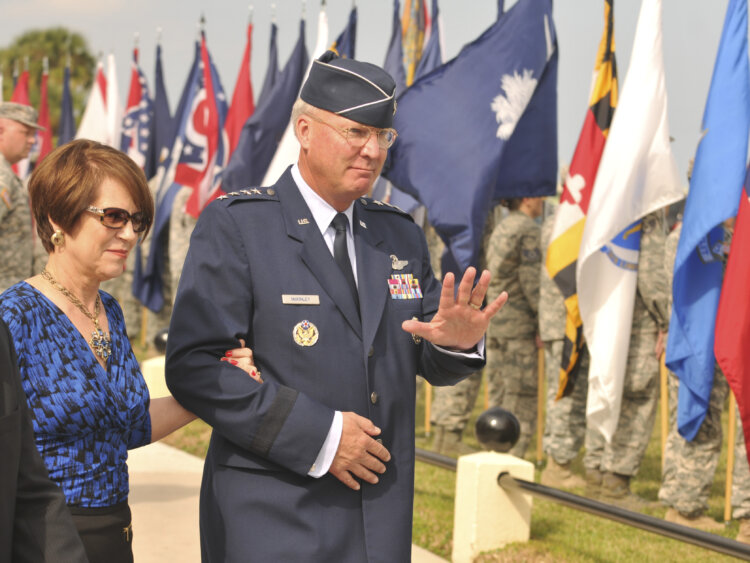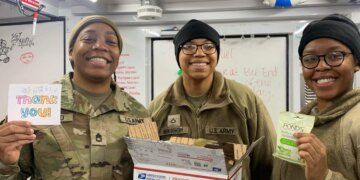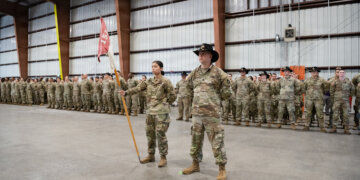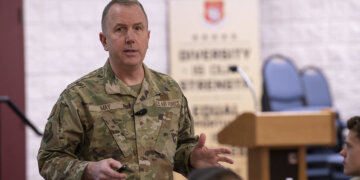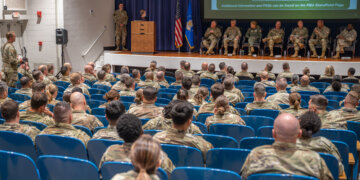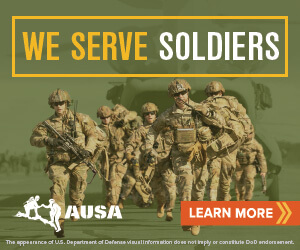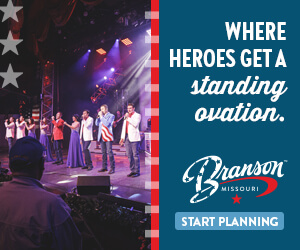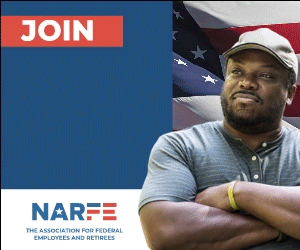“Report to work tomorrow. We’re not taking a day off.”
Former Secretary of Defense Donald Rumsfeld uttered those words to his Pentagon-based employees on Sept. 11, 2001. One of them was Air Force Gen. Craig R. McKinley, then-deputy inspector general of the Air Force, who had felt the building quiver as American Flight 77 slammed into the Pentagon that morning.
Rumsfeld’s sentences, given as a rallying cry, could also work as an appropriate career summary for McKinley, a four-star who retired in 2012 after a 38-year career as both an active duty and National Guard airman. The Florida native’s final assignment was as the Chief of the National Guard Bureau, where he also served as a member of the Joint Chiefs of Staff.
“I joined the Guard in 1980 and retired in 20212 — that’s a long arc of history,” said McKinley, a pilot on both fighters and cargoes. “And in that time, the National Guard became completely integrated with both the Army and the Air Force, as well as the other services. And how we contribute to our federal and state missions — it really is the community-based defense force.”
A driving force behind that integration, of course, was the terrorist attacks of Sept. 11. When McKinley first joined the Guard, he noticed the Air Force’s “love-hate relationship with the Guard,” as he called it.
“It was kind of like, ‘You guys stay in the corner and don’t bother us.’ The role of the Guard was very strategic then, not an operational business like it is now,” McKinley recalled. “Because after 9/11, we were frontline folks.”
Furthermore, McKinley said, America’s issues with Iraq and Kuwait in the 1990s were good preparation for what was to come, especially for the Air National Guard. The Army National Guard’s big step-up, meanwhile, arrived at the onsets of Operation Enduring Freedom and Operation Iraqi Freedom, he said. The National Guard went from being used mostly for natural disasters and state-based duties to massively mobilizing for overseas combat operations. The last time that happened on such a major scale, McKinley pointed out, was World War II.
“When you look at the Global War on Terror, the fact that from Sept. 11 until the last plane left Afghanistan this past summer, people have not appreciated what the Guard has done,” he said. “The history books have not been written about the National Guard’s contributions to the war on terror, and it’s an incredible story.”
Part of that could be McKinley’s immediate return to work at the Pentagon on Sept.11. The halls were still filled with smoke and the restrooms caked in black soot. Eventually, after workers rebuilt, the general testified in front of the 9/11 Commission — and in the audience were family members of the victims.
“The question from them was, ‘How could you let this happen?’” he said. “And my honest response was that we had never thought of an attack from within. All our military radars were looking outbound.”
It was an outlook that was permanently changed — including of the Guard’s reputation amongst civilians. Though guardsmen have long struggled to shed that “weekend warrior” stereotype, McKinley said that the events of the last 23 years have drastically changed that view. After all, he pointed out, very few people outside of the National Guard and reserves could be working a full-time civilian job one day, saving lives during a hurricane the next and in a combat zone the month after that.
“Our people are magnificent — family men and women with so many different tugs on their lives,” McKinley said. “It’s their resolve and perseverance that is probably the most important singular feature of my time in the Guard.”
Read comments



